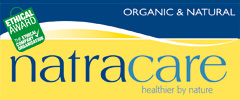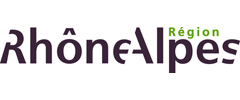WECF Annual Report 2011
Working Together for a Healthy Environment for All
05.11.2012

"WORKING TOGETHER FOR A HEALTHY ENVIRONMENT FOR ALL"
Women in Europe for a Common Future (WECF) is a network of over 100 organizations and several hundred individual members concerned with promoting a healthy environment for all, strengthening the role of women, and promoting a gender approach in environment and sustainable development policy and implementation at local, regional, national and international levels.
The year 2011 was foremost marked by the terrible nuclear catastrophe in Fukushima, Japan. Any nuclear operation should be prepared for the worst, or not be allowed to operate. The nuclear operators and the government were not transparent towards the citizens for whose well-being they are responsible. Tests by citizen’s groups found that children’s playgrounds in the capital Tokyo, well outside of the area from where people had been evacuated, were contaminated with radioactive pollution. Many food products were polluted. The ocean is polluted. First deformed butterflies have already been found near Fukushima. And as radioactive pollution will continue to be dangerous for humans and animals for hundreds and even thousands of years to come, it is sad that once more official health authorities are reporting that the worst health effect from Fukushima is “stress”, in a way insinuating that citizen’s should stop asking questions and just continue their jives as if nothing has happened.
WECF has been calling attention to the great and irresponsible health risks from nuclear industry since its early years. Most policy makers worldwide are unaware about the terrible health effects of the nuclear industry activities in the former Soviet Union, following the testing of atomic bombs in Semipalatinsk and the Mayak Nuclear
complex explosions in Chelyabinsk province in the 1950s, from which the local populations continue to suffer, amongst others from birth defects and cancers. But not only exposure to high level radioactivity, also the exposure to low-level radioactivity are leading to inacceptable health effects, as shown by the many ill children living near uranium mines. In the former Soviet Union, houses were built with the waste from uranium mines, exposing families day in day out to radiation. Unfortunately in many countries in the world low radio-active waste has been used in construction works.
Fukushima was a wake-up call, and in 2011 WECF continued to speak out, in Germany, France, Netherlands, Kazakhstan, New York and Nairobi, about the need for a fast phase-out of nuclear energy, and much better legislation regarding opening and clean-up of uranium mines. WECF shared new information on the true cost of nuclear energy, such as the as yet unforeseen high economic costs of dismantling closed power plants, which no country in the world has yet seriously embarked on. We are leaving our children and grandchildren an unacceptable burden in the form of the immense economic costs and health damage.
2011 was also the year of the expansion of Project Nesting – "creating a safe indoor environment for your child” programme in 8 EU countries, and its related “toxic free toys” campaign,as the highlight of the year. More then 237.000 visitors in 2011 on the joint Nesting websites were proof of the growing interest from parents and consumer for better protecting of their children from harmful substances in the environment. Also medical profes- sionals and midwives asked to become multipliers, a training kit exists in 2 languages, and more than 30 trainings were given also to parents, by trained trainers. The public “toys testing events” in France and the Netherlands attracted a lot of media attention, and both events were features on prime TV and radio. Partners from the South Eastern European region started sharing best practices, and have obtained great deal of media and press attention in Albania and Macedonia, looking also at how to best implement European Chemicals regulation in their countries to protect human health. Nano materials and Endocrine Disruptors are new substances of concern, and also here WECF has increased political attention and interest of consumers, through letters to MPs and a critical event at the “nano-festival” in the Netherlands, and active contribution to “nano-dialogues” in Germany and France.
2011 was also the year of many successful local transformation projects with our partners. In 8 Eastern European, Caucasus and Central Asian countries women and men are installing solar water heaters in villages where previously hot water was inaccessible or unaffordable, providing hot water for washing as well as heating, in summer and in wintertime, without creating more CO2 emissions.
2011 was also the year of the Women Major Group preparations for Rio+20. Partners from 6 African countries held consultations with local women’s organisations, NGOs and policy makers, to prepare their own recommendations for the summit of heads of state on sustainable development. WECF leads the Women Major Group for Rio+20, together with our Southern Network partner DAWN – Development Alternatives with Women for a New Era, and a strong group of core-partners including WEDO, ENERGIA and Global Forest Coalition.
I am proud to present this annual report to you, as WECF and its partners have achieved admirable results despite the current financial crunch from which all non-profit organisations suffer.
Join us if you can, as member, partner or sponsor, to work with us
on achieving our goal of a Healthy Environment for All!
Sascha Gabizon
Executive Director WECF

































